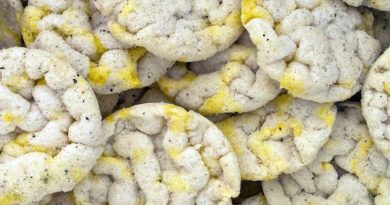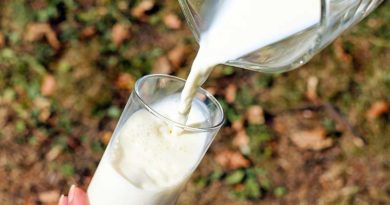Red meat & Cancer
It is estimated that 1 in 2 people in the UK will develop cancer in their lifetime (Ref 1). US statistics suggest that approximately 4 in 10 people will develop cancer in their lifetime (Ref 2). Incidence of cancer in less developed regions of the world is approximately one third of that of developed regions (Ref 3). The figures from less developed regions should be interpreted with caution however, as data may not be as accurate from all parts of the world. Plus, people die of other things before they can develop cancer in war-ravaged and/or poverty stricken countries.
What these statistics do tell us, however, is that we live in a carcinogenic world. To be more specific, we have made our world carcinogenic. We have polluted the air that we breathe; the water that we drink and we have made fake food in laboratories as a ‘convenient’ alternative to the food that the planet has provided for us. We bathe in carcinogenic chemicals – whether in swimming pools or in bath tubs. We clean our house and weed our gardens with carcinogenic substances. We put chemicals on our hair, face, neck and wrists – in fact all over our body – on a daily basis. We can increase our chances further by smoking, but we’ve still got the flip of a coin chance of getting cancer in our lifetime.
This note, therefore, is written with the context that pretty much everything around us is potentially carcinogenic This note is also, however, written with the context that, as the surgeon captain Thomas (Peter) Cleave (1906–1983) said: “For a modern disease to be related to an old fashioned food is one of the most ludicrous things I have ever heard in my life.”
Playing my cards up front – it makes complete sense to me that anything in our modern world could be carcinogenic. It equally makes no sense to me that red meat, the food that has taken us from Neanderthal to rocket scientist, should be singled out as carcinogenic. I do think that meat comes on a spectrum, from pasture fed ruminants to processed meat-like substances. If you are worried about meat and health, do the right thing for you, the animal and the planet by sticking to pasture fed ruminants. Processed food cannot be as healthy as real food, whether it’s processed meat-like products or processed cereals or biscuits.
Organisations like the IARC (International Agency for Research on Cancer) do themselves no favours and show their bias, by not distinguishing between the spectrums of meat when it comes to health. I have never seen research that tries to compare the healthiest meat from free-living animals vs. steaks from poor cows that have been contained in sheds and fed indigestible grains during their tragic lives. That’s just the spectrum within acceptable definitions of red meat. Within processed meat, we have cured meats – the time honoured and perfectly natural way of preserving meat – and we have factory processed meat ‘sticks’ with sugar, wheat and all sorts. Red meat and processed meat are pretty useless categories for analysis and the researchers know this.
With all of these caveats, this week’s note looks at the IARC’s Monograph on “Red meat and processed meat”, which was released on 29th March 2018 (Ref 4). The monograph has been a long time in coming. The press release for this document was released in October 2015 (Ref 5). Nothing like a press release two and a half years ahead of the evidence!
The rest of this article is available to site subscribers, who get access to all articles plus a weekly newsletter.
To continue reading, please login below or sign up for a subscription. Thank you.




